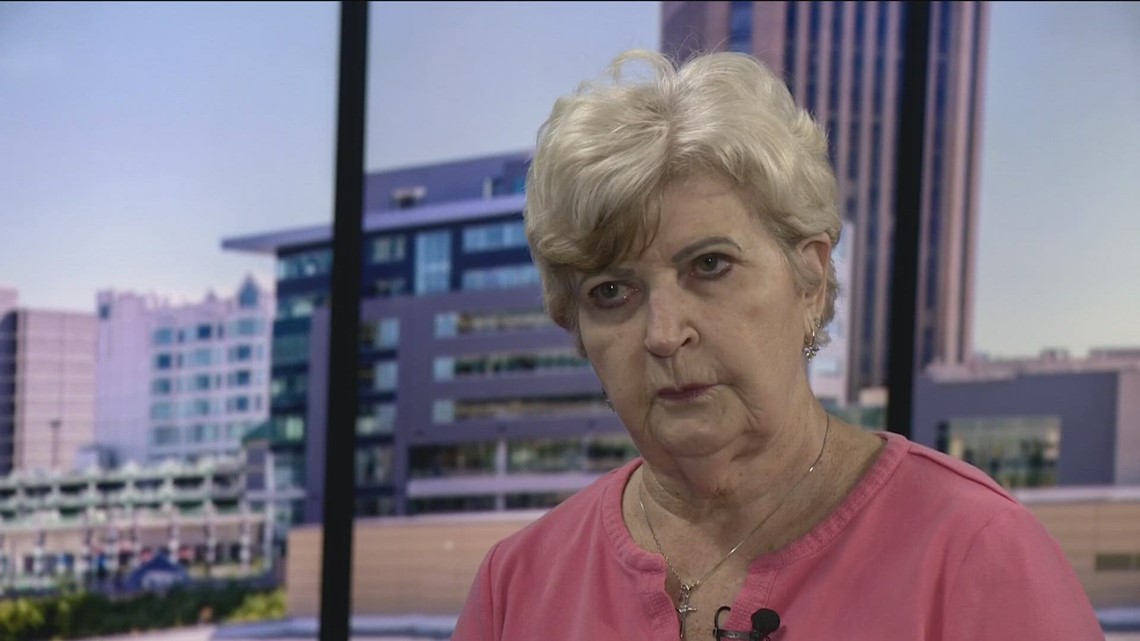China’s slow AI roll-out points to its tech sector’s new regulatory truth
/cloudfront-us-east-2.images.arcpublishing.com/reuters/4BM4EPGWORI2JD3UC2KLGAUNCA.jpg)
Table of Contents
[1/3]An AI (Synthetic Intelligence) indicator is noticed at the Planet Synthetic Intelligence Meeting (WAIC) in Shanghai, China July 6, 2023. REUTERS/Aly Track
HONG KONG, July 12 (Reuters) – China has joined the world wide hurry to generative synthetic intelligence, boasting near to 80 AI versions from corporations like Baidu (9888.HK) and Alibaba (9988.HK) and startups attracting just about $14 billion of funding more than the previous six months.
But contrary to in the West, in which OpenAI’s ChatGPT has captivated a lot more than 100 million month to month consumers whose inputs aid it to discover from to continuously refine and strengthen its products, no Chinese AI chatbots have been produced available to the basic public.
It speaks to the new fact in China’s engineering sector and the usefulness of Beijing’s a long time-extended regulatory crackdown, culminating with substantial fines towards Ant Group and Tencent past week.
Once acknowledged for a cutthroat, “race to industry” spirit significantly in the client internet sector, companies are slowing down to toe the line and take their cues from Beijing.
The previously free-wheeling sector is now seen to be mainly compliant, with firms from Alibaba to Tencent (0700.HK) generating more than their businesses, slowing down growth into new areas and laying off countless numbers of staff members.
New rules Chinese firms have to comply with selection from algorithm vetting to accepting stability critiques of facts they want to export.
But though Beijing now has a cope with about what it seen as excesses and misbehaviour that arose from the industry’s runaway advancement, some specialists are commencing to audio the alarm bells on the influence on long run competitiveness with Western rivals, presented the harmony firms are having to strike.
Chinese regulators last week reported most of the challenges with the country’s platform organizations had been rectified, moves found as a signal the crackdown is eventually in excess of.
But Henry Gao, a law professor at Singapore Management University, stated the restricted regulatory atmosphere, now stricter than other countries in lots of parts, was expected to persist.
“There have been so several what I call ‘preemptive regulation’ in China in current many years. They unquestionably stifle the innovation and sluggish down the means of Chinese corporations to catch up.”
BETA Testing
Industry executives say these troubles are significantly acute in generative AI as worldwide desire in the engineering surges adhering to the good results of Microsoft-backed (MSFT.O) ChatGPT and Chinese corporations race to capture up with U.S. peers.
Though various very publicised launches have been held in China, from Baidu’s Ernie Bot to SenseTime’s (0200.HK) SenseChat, all keep on being in beta tests and only open up to picked buyers.
In May perhaps, Baidu CEO Robin Li reported it was ready for authorities approval for Ernie Bot.
“Simply because the formal regulatory framework has not been founded, many Chinese online corporations are unable to conduct large-scale testing on their generative AI products that are either below enhancement or presently produced,” explained Jialong Shi, the head of China web fairness study at Nomura.
Obtaining additional customers can help ChatGPT refine its model to much better account for language patterns like slang and idioms, detect errors, answer to unheard of situations and minimize cultural biases in responses, according to the chatbot.
A critical determination powering China’s reluctance to release AI chatbots is that Beijing fears uncensored chatbots could get started influencing societal views in possibly subversive instructions, stated Mark Natkin, running director of investigate organization Marbridge Consulting.
‘HITTING THE BRAKES’
China in April outlined a established of draft actions for generative AI products and services that reported companies would will need to post safety assessments to authorities ahead of launching their products.
Analysts have criticised some of the guidelines as especially onerous, these types of as an obligation for AI provider companies to verify the reality and accuracy not just of what the AI designs develop but also of the substance used to coach them.
The measures are envisioned to be finalised and in put by the finish of this year. The Chinese authorities is also planning a devoted AI legislation but has not supplied specifics.
To be confident, China is viewed to be forward of the regulatory curve as international locations globally grapple with setting up guardrails on the wildly common technological innovation, weighing safety and copyrights while retaining an ecosystem conducive for innovation.
But Heatherm Huang, co-founder of Hong Kong-centered tech enterprise Measurable AI, said he observed this putting Chinese corporations at a downside, as U.S. products this sort of as Google’s Bard and Microsoft’s Bing have gone straight to industry.
“It truly is like putting a pace limit on a race auto — it can be slowing things down,” he explained. “Even though the U.S. is racing in advance with AI, China is hitting the brakes with more principles.”
Company Focus
Most of the Chinese tech firms have as a substitute for now centered on getting purposes for industrial use, a path analysts stated was in line with Beijing’s priorities and a crucial intention of the new regulatory framework.
Chinese President Xi Jinping has pressured he wishes to see more strength place to “really hard” systems such as semiconductors and industrial AI apps, and breakthroughs that could help China minimize reliance on Western engineering.
Huawei Technologies (HWT.UL) claimed last 7 days its Pangu AI model would mainly serve enterprise customers for purposes like security inspections for freight trains and temperature prediction.
Baidu mentioned last week that more than 150,000 firms have used to examination Ernie Bot considering the fact that its launch in March, with over 300 testing it in spots like improving upon business office effectiveness, customer services and internet marketing.
Reporting by Josh Ye Enhancing by Brenda Goh and Jamie Freed
Our Criteria: The Thomson Reuters Rely on Concepts.
/cloudfront-us-east-1.images.arcpublishing.com/gray/MZZ6VZA235A7XOAVDRAO3AOUWQ.jpg)





